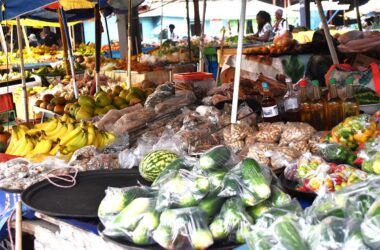LAST month, officials in Trinidad and Tobago declared a nationwide state of emergency in response to a string of gang-related deaths. The decision came in response to what a local official described as an “outbreak of gang violence”.
Earlier this month, members of Saint Lucia’s ‘Sixx’ and ‘Seven’ gangs decided to halt violence following months of feuding.
Gang-related violence is also a problem in other Caribbean countries too. In fact, in recent years, the Caribbean has seen a disturbing increase in criminal gang activity, and Saint Lucia is no exception. Gangs like the ‘Sixxs’ and ‘Sevens’ have risen, emulating the legendary gangs of Trinidad and Tobago. The presence of these gangs jeopardises our communities’ safety and well-being.
The fatal outcomes of these gangs are far-reaching and destructive, emphasising the importance of focusing on their leaders. Cutting off the head (leadership) rather than the average gang member (the tail) sends a strong message to gangs that the government will not tolerate their presence in society. The authorities’ message must be heard loud and clear: gang violence leads to an increase in homicides and violent crimes, creating an environment of dread and insecurity. Innocent lives are frequently lost in the crossfire, leaving families to lament the death of loved ones. The psychological impact on communities is considerable since citizens are always fearful of becoming victims of gang-related violence.
The presence of gangs damages the social fabric of our society. Gangs frequently recruit young, impressionable people, tempting them with promises of power, money, and a sense of ‘family’. This not only reinforces the cycle of violence but also denies our youth opportunities for education and personal growth. When our young people are enticed into a criminal lifestyle, our country’s future is jeopardised.
Gangs are frequently involved in a variety of criminal and illegal activities, such as drug trafficking, extortion, and human trafficking. These illicit activities generate substantial earnings, which are utilised to strengthen the gangs’ authority and influence even further. The criminal economy established by these gangs weakens regular businesses and stifles economic growth, resulting in increased poverty and inequality. Haiti comes to mind.
Given the toxic nature of these gangs, it is evident that strategic tactics are required to counter their influence. Arresting individual gang members is like treating the symptoms rather than addressing the underlying source of the problem. To successfully diminish these gangs’ operations, their leaders must be identified and made powerless.
Toppling criminal gang bosses demands a multifaceted approach. Law enforcement authorities must have the means and training to carry out intelligence-driven operations aimed at identifying and apprehending gang leaders. Furthermore, working with regional and international partners is critical to disrupting the networks that support these gangs.
Furthermore, community participation and social intervention programmes are critical for limiting the recruitment of new gang members. Giving at-risk adolescents access to education, vocational training, and mentorship can help them avoid a life of crime. By tackling the socioeconomic conditions that contribute to gang membership, we can build a more resilient and united society.
Finally, the lethal results of criminal gangs in Saint Lucia and the wider Caribbean cannot be disregarded. To effectively challenge these gangs’ power, authorities must concentrate on attempts to depose their leaders. By doing so, we can restore peace and security to our communities and provide a better future for our children. Now is the moment to take decisive action.


![Julien Alfred, left, edges Jacious Spears to win the women’s 60 metres at the Tyson Invitational in Arkansas, USA on Friday [Photo credit: CMC]](https://thevoiceslu.com/wp-content/uploads/2026/02/Julien-alfred-1-380x250.jpg)
![Denver Alphonse Jr. [Photo Credit: ASC KCS]](https://thevoiceslu.com/wp-content/uploads/2026/02/Denver-Alphonse-Jr-feat-380x250.jpg)
![On field action in the Bay Bay Cup [Photo credit : MYDS]](https://thevoiceslu.com/wp-content/uploads/2026/02/On-field-action-in-the-Bay-Bay-Cup-feat-380x250.jpg)








